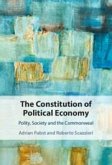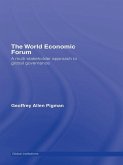How do modern Muslims adapt their traditions to engage with today's world? Charles Tripp's erudite and incisive book considers one of the most significant challenges faced by Muslims over the last sixty years: the challenge of capitalism. By reference to the works of noted Muslim scholars, the author shows how, faced by this challenge, these intellectuals devised a range of strategies which have enabled Muslims to remain true to their faith, whilst engaging effectively with a world not of their own making. The work is framed around the development of their ideas on Islamic socialism, economics and the rationale for Islamic banking. While some Muslims have resorted to confrontation or insularity to cope with the challenges of modernity, most have aspired to innovation and ingenuity in the search for compromise and interaction with global capitalism in the twenty-first century.
Hinweis: Dieser Artikel kann nur an eine deutsche Lieferadresse ausgeliefert werden.
Hinweis: Dieser Artikel kann nur an eine deutsche Lieferadresse ausgeliefert werden.
'In this finely observed and trenchant study, Charles Tripp presents a unique examination of the assumptions behind Muslim views of economics and explores, with particular mastery, the logic behind contemporary criticisms of capitalism. He is persuasive that, amidst the ambivalent transformations of modern Muslim thought, economics emerges as a functional as well as moral endeavour, and meticulously documents the various ways in which Muslims have appropriated, or resisted, dominant views on society, economics, and politics. There could thus be no surer or more informed guide than this to the scholarly and public debates over the centrality of development, social need, and justice to the evolving 'common sense' of Muslim societies.' James Piscatori Oxford Centre for Islamic Studies and Wadham College, Oxford








